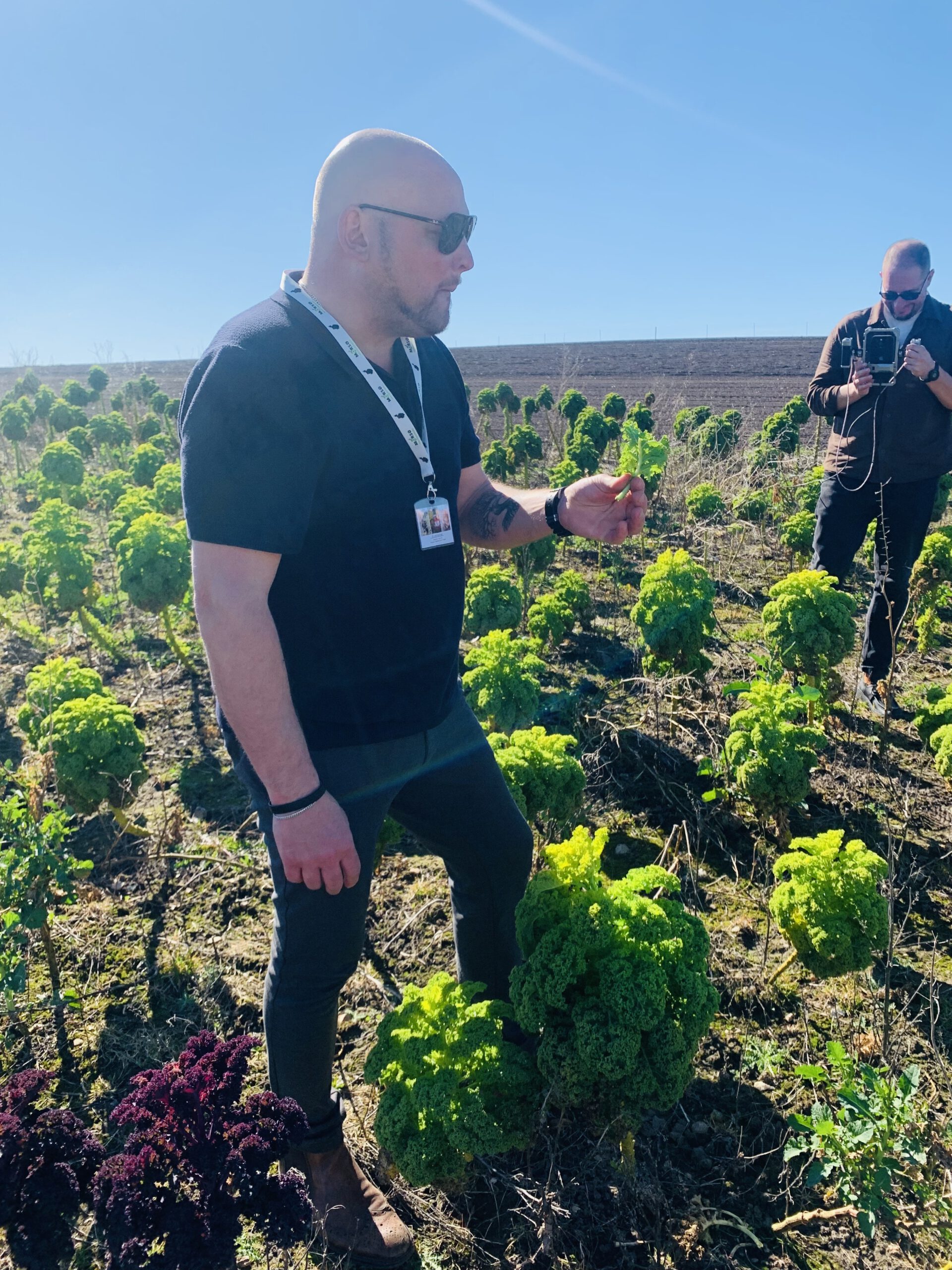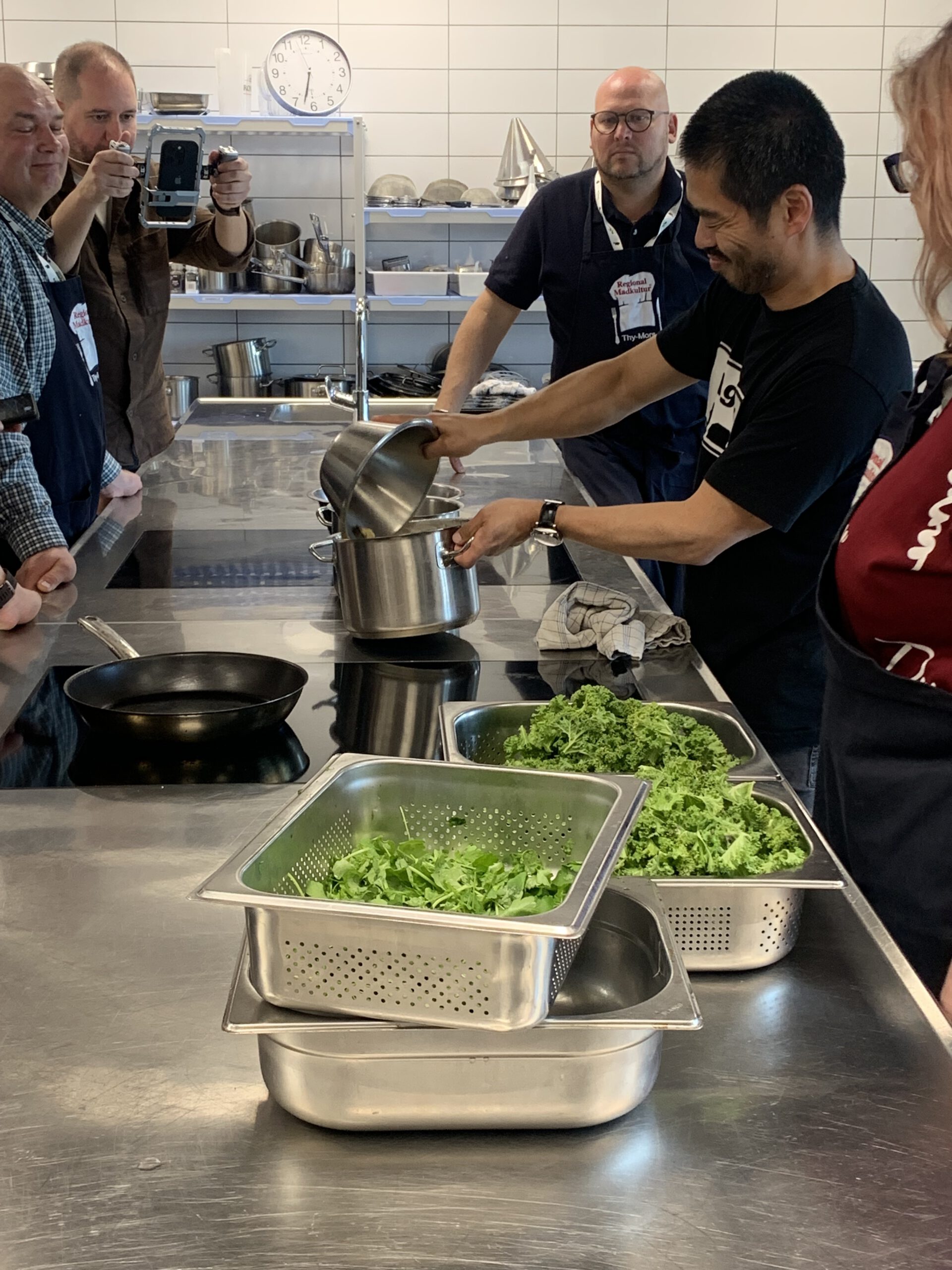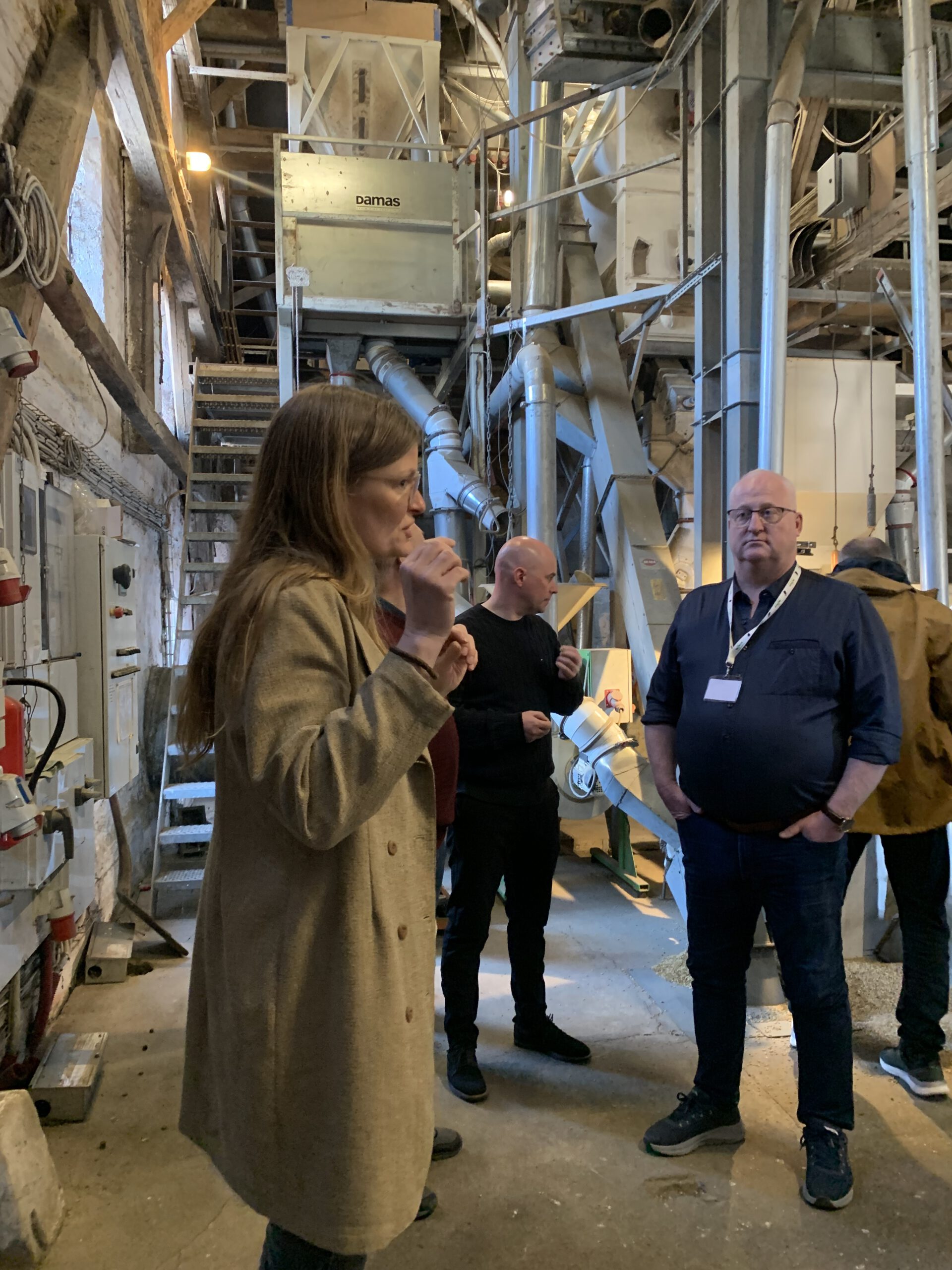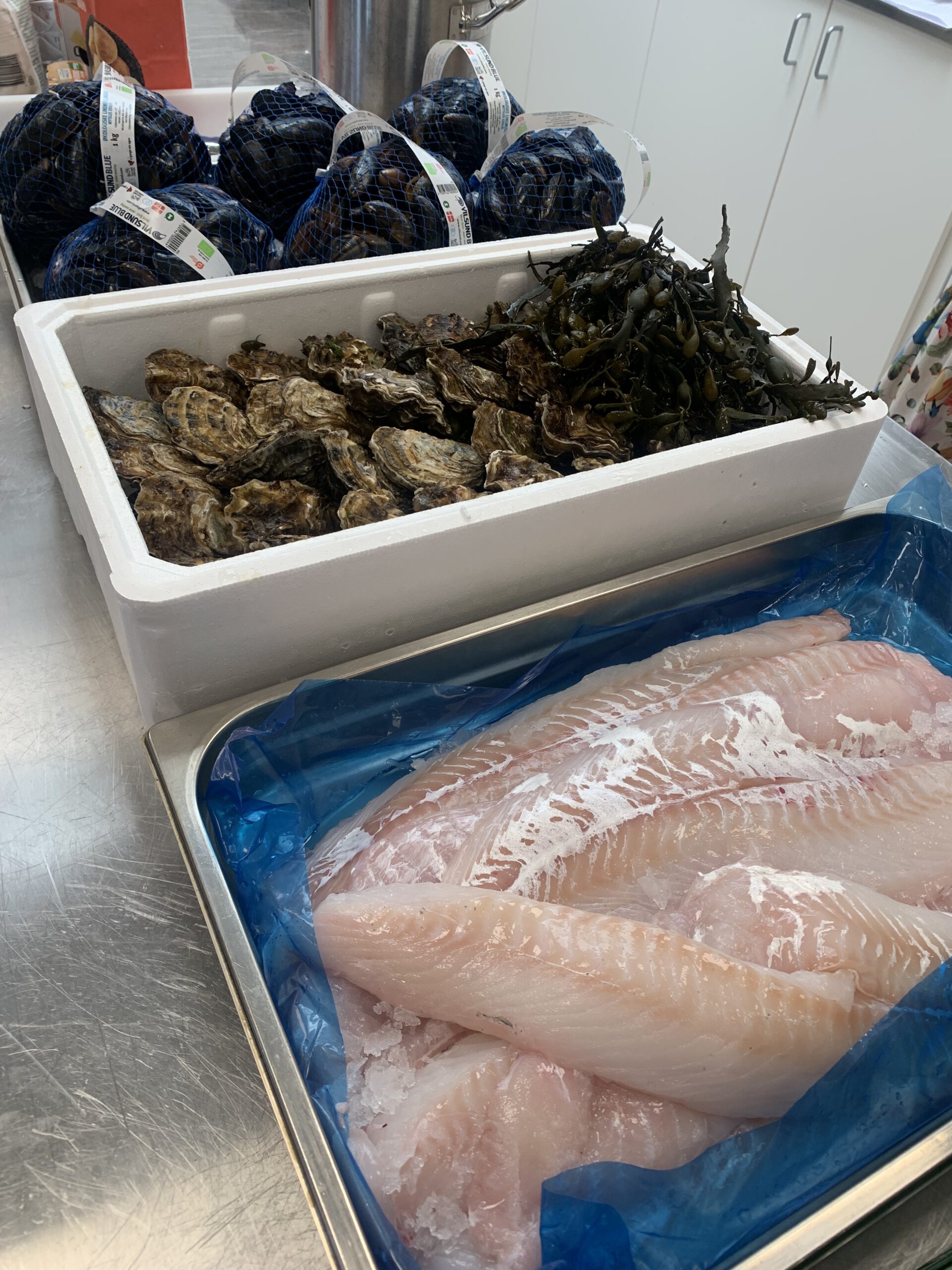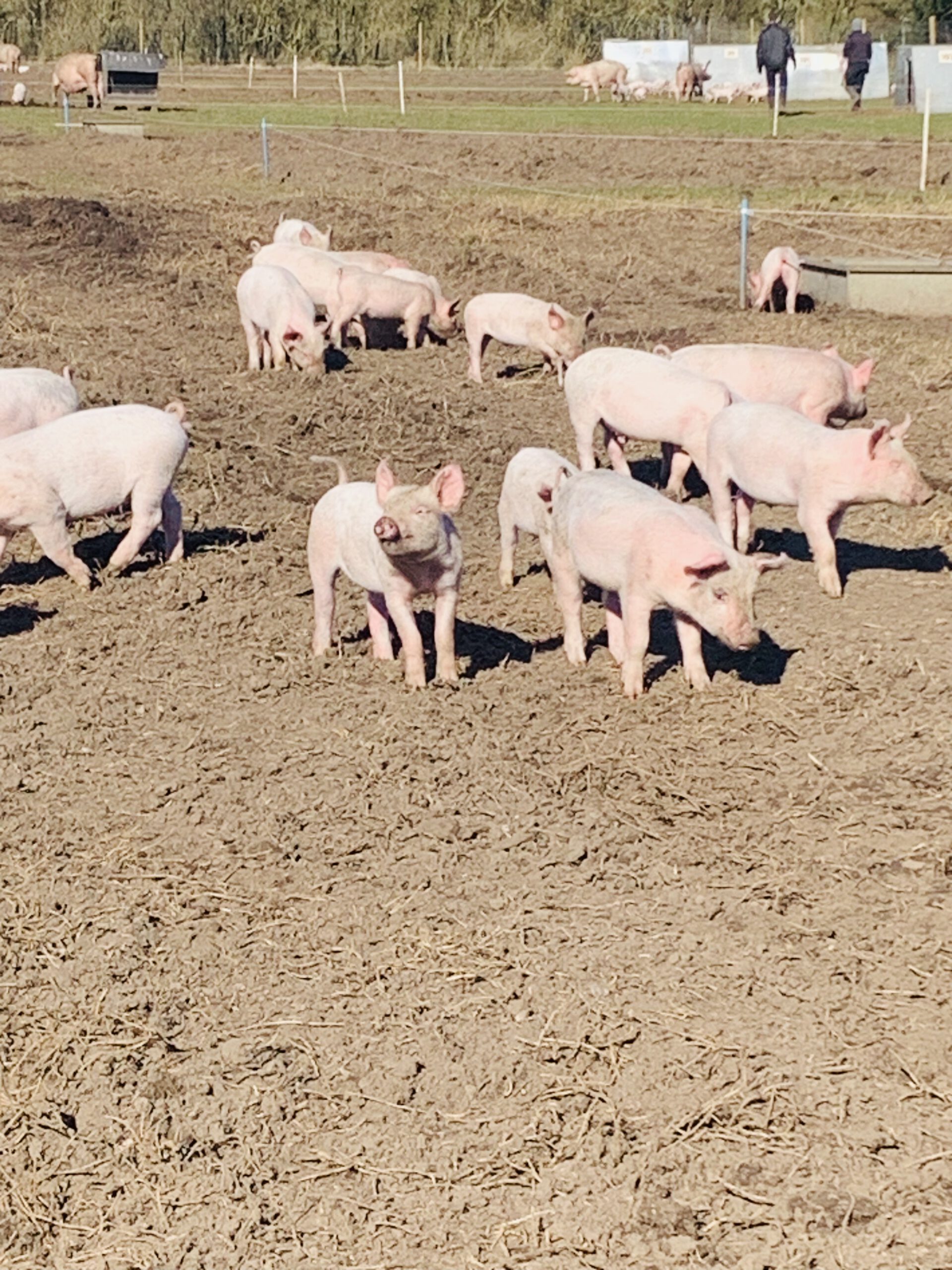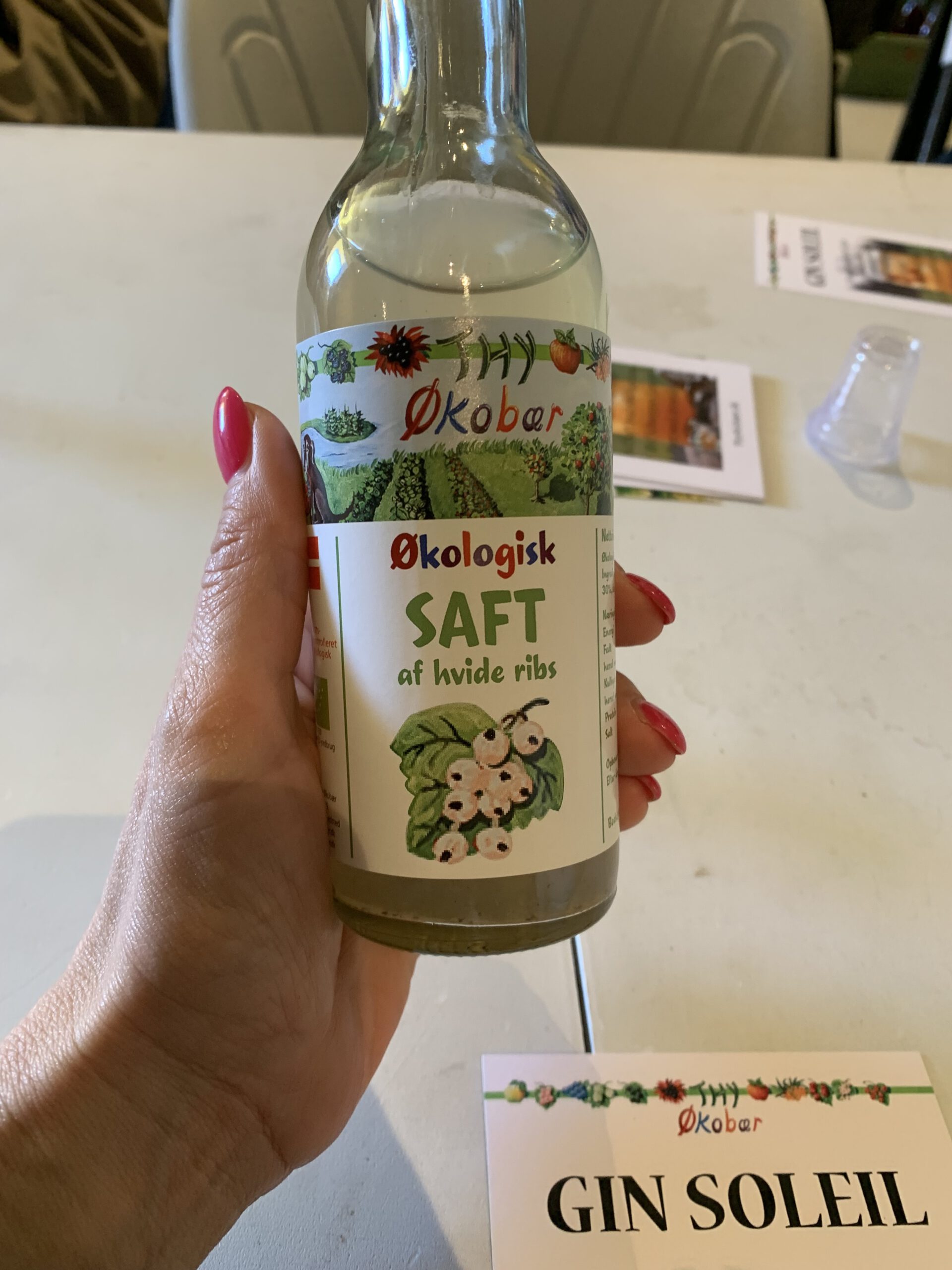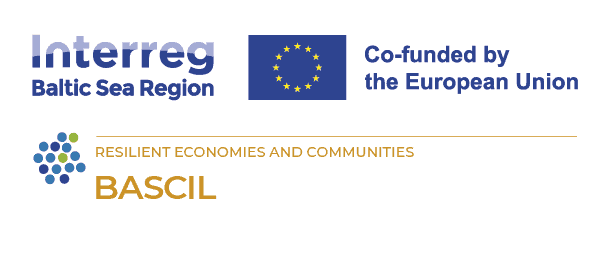
Swedish companies in the BASCIL project explore culinary culture in Denmark
28 April 2025
Organising a study visit to a neighbouring region is a key deliverable within the BASCIL project. The purpose of the trip was to explore another region’s culinary culture, and for southern Sweden, this naturally meant travelling to Jutland in Denmark.
Alongside Krinova’s project managers Niclas Fjellström and Johanna Gerberich, the companies Österlens Kött och Vilt, Ivögården, and Brösarps Gästis participated as part of a larger group totalling 15 participants.
The business office in Hurup, western North Jutland, warmly welcomed the group with a packed programme showcasing unique Danish food production. The agricultural region around the Limfjord is ideal for small-scale food production, and the local business community presented inspiring examples of Danish food craftsmanship and farm-based beverage sales.
The group visited a variety of genuine artisanal food producers, many of whom had also invested in creating culinary experiences for visitors. For example, an oyster fisherman who opened a restaurant featuring his own catch, a vegetable grower passionate about produce who personally delivers to restaurants and employs individuals who have previously been outside the labour market. Other highlights included a cheese dairy with farm sales, a brewery offering beer tastings, a pig farm with outdoor pigs, an organic berry juice producer, and sisters who have taken over their parents’ barley farm and are now focusing on whisky production — with spent grain repurposed as cattle feed. Every visit was characterised by genuine hospitality and high quality, truly inspiring the BASCIL companies.
At each stop, local produce was collected, later used in a teambuilding “cook-along” session at Nordiv Food College Morsø, led by chef Nicolas Min Jörgensen.
It was extremely valuable to witness small-scale farm sales of alcoholic beverages in practice and to learn about the challenges and experiences of the Danish producers. Farm sales of alcohol are already permitted in Denmark, a development likely to be realised for Swedish companies this summer. This visit gave the participants the opportunity to observe concrete activities that could serve as educational components — a requirement for the forthcoming Swedish farm sales legislation.
“Although the Danish region is geographically close, it is quite different in many ways,” said Johanna Gerberich.
“Experiencing another region, seeing different activities, and meeting entrepreneurs who have already undertaken the journey that BASCIL companies are embarking on was incredibly rewarding and inspiring for the participants. Many also highlighted the benefits of taking this study trip together, demonstrating the power of collaboration in strengthening team spirit and promoting future partnerships,” Johanna concluded.






